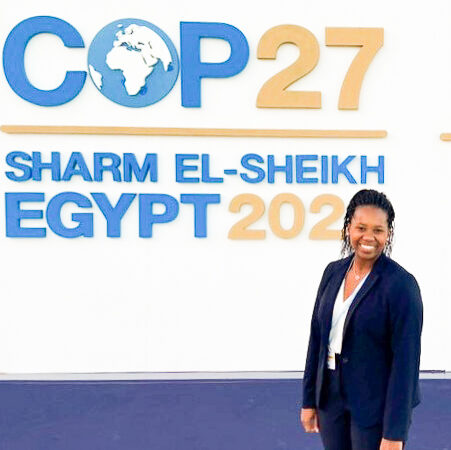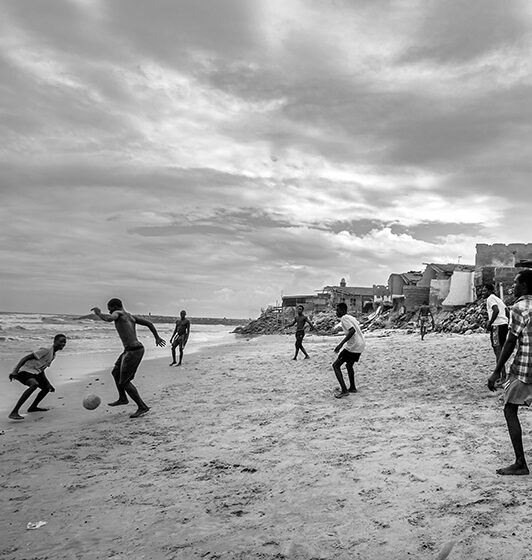
Alayna Jenkins
Looking Back at COP27
By: Alayna Jenkins
Attending the United Nations Climate Change Conference (COP27) in Sharm El Sheikh, Egypt, was truly an honor. I continue to feel immense privilege to have had the opportunity to meet people from all over the globe and to gain insight into the multi-dimensional impacts that climate change has on people’s lives around the world.
When I landed in Sharm El Sheik, Egypt, I felt a sense of overwhelming energy. I was eager for the days ahead and to be amongst 35,000 participants who had traveled there to address what many proclaim is the world’s greatest existential threat. COP27 was deemed a “critical moment in the fight against climate change.”
As someone who is passionate about sustainability and mitigating climate change, my top priority was attending the critical climate change negotiation sessions. Throughout the week, I was lucky to sit in several negotiation rooms and listen to testimonies from various countries. These opportunities allowed me to witness the formation of what has become one of the most historic climate change agreements, the pact to establish a loss and damage fund to help countries most vulnerable to climate change. Being allowed in the room to witness the negotiations and discussions behind this breakthrough agreement felt surreal.
At the conclusion of my trip, I received an invitation to attend President Biden’s climate address. His speech was focused on the United States role in tackling climate change. It was the perfect way to end the conference as I headed back home to the United States, feeling inspired to take action.
Alayna Jenkins is a Senior at Harvard College and is a candidate for a Bachelor of Arts in Environmental Science and Public Policy.
The Salata Institute
The Salata Institute supports interdisciplinary research that leads to real-world action, including high-risk/high-reward projects by researchers already working in the climate area and new endeavors that make it easier for Harvard scholars, who have not worked on climate problems, to do so. Faculty interested in the Climate Research Clusters program should note an upcoming deadline for concepts on April 1, 2024.










